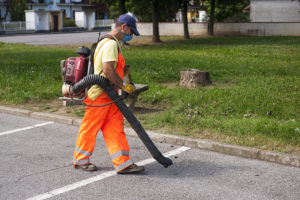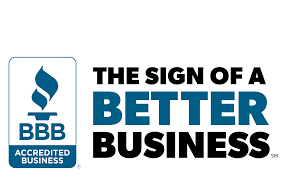Are you considering moving into a neighborhood run by a homeowners association? Before you make that all-too-critical decision, you must first learn what it means to live in an HOA community.
In this article:
Everything You Need to Know About an HOA Community
Anyone who has ever been a part of a homeowners association knows that life in an HOA comes with both benefits and drawbacks. For those who have yet to experience HOA living, it is imperative to first familiarize yourself with how these associations work. What does HOA mean? Is HOA a bad thing? Are HOAs worth it?
What Is an HOA?
A homeowners association, which is often referred to as simply HOA, is an organization that manages and runs a common interest development. These associations charge a monthly fee to its members in exchange for the maintenance and upkeep of common areas. A set of elected members, known collectively as the HOA Board of Directors, shoulder the responsibility of overseeing the association’s operations.
What does an HOA cover? Homeowners associations usually cover single-family homes, condominium buildings, or other types of planned communities. Once you move into a community run by an HOA, you automatically become a member of that association. Your real estate agent should tell you whether or not your house is part of an HOA. This information will also be reflected in your deed.
What power does HOA have? State laws and an HOA’s governing documents give associations their authority. Typically, HOAs have the power to enforce rules and regulations as well as covenants that fall under the association’s CC&Rs. Monetarily, these associations have the power to collect monthly dues, levy fines and assessments (within reason), attach liens, and even initiate a foreclosure.
What Are HOA Fees?
Homeowners association fees or HOA dues are recurring fees that an HOA charges and collects from its members (i.e. homeowners). The monthly amount can vary wildly from association to association, running from $100 to $700 and even going as high as $1,000. Several factors can affect how expensive an HOA’s fees can be, including the extent of its amenities and the location of the neighborhood.
Associations can also raise the monthly fees as the HOA’s expenses increase. But, the state laws and the HOA’s governing documents usually have restrictions on how much an HOA can raise dues. In California, for instance, Civil Code Section 5605 states that associations cannot increase homeowner fees by more than 20 percent of the previous year’s fees without obtaining approval from the membership.
What Do HOA Fees Cover?
 You will usually find this information within the association’s governing documents. Generally, though, HOA fees cover the cost of common area maintenance and any expenses related to the management of the community.
You will usually find this information within the association’s governing documents. Generally, though, HOA fees cover the cost of common area maintenance and any expenses related to the management of the community.
This includes maintenance services and supplies, management fees, legal fees, insurance, employee wages, and reserve fund contributions. Some HOAs include select utilities, too.
Can HOA Fees Be Negotiated?
If you decide to move into an HOA community, you are expected to pay its fees. These fees are mandatory and generally non-negotiable. Sometimes, if the governing documents permit, the HOA board can set up a payment plan for homeowners who are struggling financially. Because of the financial obligations involved, you must carefully consider your options before deciding to live in an HOA.
What Happens If You Don’t Pay the HOA?
You can face a number of possible consequences if you stop paying your HOA dues. These consequences can vary depending on the association and its governing documents.
In general, though, HOAs charge late fees or fines to homeowners that fail to pay their dues. These fines are added on top of your outstanding balance. Associations can also suspend your access to community amenities and even take you to small claims court. In some cases, HOAs can also attach a lien to your property and subsequently foreclose on the lien to force payment.
What Are the Pros and Cons of HOA?
As with a lot of things in life, there are benefits and drawbacks to living in an HOA community. You must take both of these into account before making a possibly life-changing decision.
Pros of Living in an HOA Community
Your monthly fees include the following benefits:
- Access to Amenities – Homeowners associations usually have plenty of amenities to keep members happy. Although every HOA is different, some of the most common amenities can include community pools, clubhouses, tennis courts, gyms or fitness centers, golf courses, and parks. Some communities even have restaurants within their reach.
- Inclusive Utilities and Services – With an HOA, you no longer need to worry about services like trash collection, snow removal, and landscaping. Your monthly fees typically cover all of these services and more. Many HOAs also include select utilities, such as water and gas, in their monthly dues.
- Dispute Resolution – Disputes with your neighbors can get messy and quickly escalate to legal action. Associations, though, usually have dispute resolution procedures to maintain harmony within the community.
- Socializing Opportunities – When you live outside of an HOA, you rarely get to socialize with your neighbors. Homeowners associations make it possible to get to know your neighbors beyond a passing hello. HOAs usually hold numerous meetings and social events that make it easy for you to form close relationships with other people in your community.
- A Peaceful Community – In an HOA community, there are rules to maintain everyone’s right to quiet enjoyment. You can expect your HOA to have rules that regulate noise, parking, smoking, and other nuisances.
- Protect Your Investment – As a homeowner, you definitely want to get a good return on your investment. Although HOAs have a lot of rules, these rules exist to maintain curb appeal and protect property values. If you decide to sell your property in the future, you can expect to sell it at a profit.
Cons of Living in an HOA Community
What are the downsides of HOA living?
- Monthly HOA Fees – Let’s start with the obvious. HOA fees are rarely cheap, and you need to make room in your monthly budget for this expense. Remember that defaulting on your dues payments can result in a handful of unsavory outcomes, including the next con on this list.
- Could Lead to Liens or Foreclosure – As discussed previously, many HOAs have the power to file a lien on your property and then initiate foreclosure if you fail to pay your dues.
- Restrictive Rules – Homeowners associations usually have restrictive covenants and rules to protect the aesthetic appeal of the neighborhood. Do you want to paint your house a funky color? Maybe add a balcony to your second floor? What about parking a truck in your driveway? Check your governing documents first to see if your HOA allows any of these. More often than not, you need to go through a comprehensive application process to get any major architectural changes approved.
- Not Much Privacy – This does not apply to all homeowners associations, of course, but there are a number of HOAs out there with not much space in between homes. Living in such close quarters can affect how much privacy you get.
- Poor Management – Unfortunately, not everyone has the time or skills required for HOA community management. This often leads to poor management of the HOA, resulting in a decline in property values. Other times, board members may even intentionally defraud the association. The best way to prevent this is to seek professional help in the form of an HOA management company.
Tips for Maximizing Life in HOA Communities
1. Know and Obey the Homeowners Association Rules
You should familiarize yourself with the rules of the community prior to buying your home. This way, you can still back out if you find the rules too unreasonable or restrictive for your taste. But, your responsibilities as an HOA member does not stop there.
Even after buying the home, you should reacquaint yourself with the association’s rules. This will allow you to avoid committing violations and paying any associated fines. You should also feel free to ask the HOA board any questions you might have. Remember that the key to a problem-free life in an HOA community is to know and follow the rules.
2. Keep Yourself in the Loop
 It is the responsibility of the HOA board to disseminate information to all owners, but it also helps if you actively try to stay informed.
It is the responsibility of the HOA board to disseminate information to all owners, but it also helps if you actively try to stay informed.
HOA communities undergo a lot of changes, and keeping yourself in the loop can prevent potential problems.
See to it that you are included in the HOA’s mailing list. In doing so, you can ensure you receive email blasts, text messages, mail, and newsletters promptly. If your HOA has a website or social media page, check it regularly or turn notifications on. Staying connected is a surefire way to make sure you are never behind on the latest HOA news.
3. Take Advantage of Amenities, Events, and Services
Your HOA fees pay for a lot of perks, so you might as well make the most out of them. If your HOA has a pool for members, spend your Saturday afternoons swimming or just relaxing by the pool. Play a round of golf or a game of tennis every once in a while. Stay fit using the community gym or fitness center. Have a picnic in the park or take your kids to the playground.
The activities do not need to stop there either. You should also attend community events, which are a great way to socialize. Participate in meetings, vote in HOA elections, and become an active member of the community.
4. Be a Good Neighbor
You will be seeing your neighbors every day for a long time, so you should try to establish a good relationship with them. Say hello every once in a while or invite them over for dinner.
Neighborly behavior also extends to the association’s rules. If you feel that your neighbor has violated a rule, talk to them first instead of going straight to the HOA to report the violation. Perhaps they simply forgot or did it unintentionally. Maybe you even misinterpreted the situation. They will appreciate that you politely approached them first, and you can expect them to return the favor in the future.
5. Volunteer for HOA Work
There are plenty of ways to serve your HOA community. Joining a committee, for instance, is a good way to lend a helping hand. Even something as small as attending a meeting or voting on association matters can make a difference. If you want to take it up a notch, try running for a position on your HOA board. The job does not come with pay, but it is an opportunity to improve the community for everyone.
Can I Leave My HOA?
Generally, there is no way to leave your homeowners association without selling your property. But, you can check your association’s governing documents to verify. Some CC&Rs have provisions on how you can de-annex your lot from the HOA. Though, that kind of process usually involves meeting numerous requirements, such as getting approval from the HOA board or association members.
Is Having an HOA Worth It?
Whether or not homeowners associations are worth all comes down to personal preference. Clearly, living in an HOA community comes with both pros and cons. For some, the pros may outweigh the cons, but others might think otherwise.
When making your decision, it is important to remember that HOAs do make residential life easier. In exchange for monthly fees and following the rules, you are provided perks that range from convenient amenities and services to property value protection.
If your HOA needs help managing the community, hire an HOA management company.







